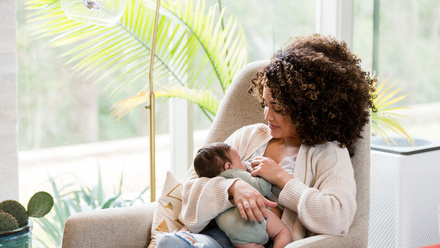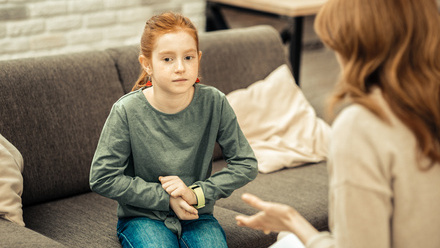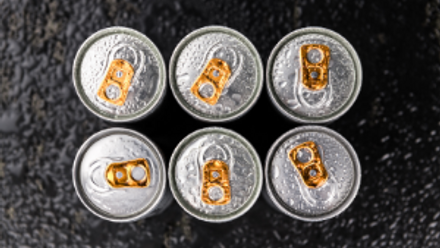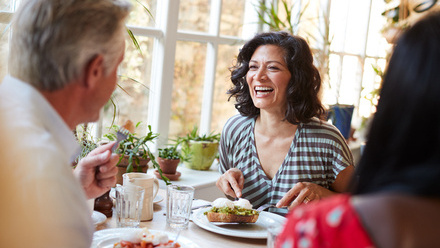Should businesses be prohibited from selling high-caffeine energy drinks to children?
Yes
As the consultation paper recognises, there is significant evidence about the negative impact of high caffeine intakes on children. There is also evidence that consumption of these products, despite health warnings, has grown amongst under-18s. We highlighted a great deal of this evidence as part of the Commons Science and Technology committee inquiry into energy drinks in summer 2018[1]. EU law requires that these products be labelled as unsuitable for children, and organisations such as the WHO[2], RCPCH[3] and American College of Sports Medicine[4] already strongly recommend that these products are not consumed by children because of negative health impacts.
Energy drinks are of particular concern because of their similarity to other soft drinks, which we know to be appealing and palatable to children. They are also frequently available at much lower cost that other sources of caffeine, particularly less well-known brands. Research by the Fuse collaboration[5] has shown that taste and cost are particular considerations for children. Their findings also showed “own brand” energy drink brands are often cheaper than any other soft drink available. The research also highlighted that purchases of these cheaper options was more likely to be from small shops rather than supermarkets. This makes it clear that voluntary bans in big supermarket chains will not be sufficient.
We believe the focus of any policy to end the sale of these products needs to be specifically on caffeine content, as high sugar content is included within the Sugar Levy and wider sugar reformulation work. Plus, low or non-sugar versions of these products exist.
[1] https://www.parliament.uk/business/committees/committees-a-z/commons-select/science-and-technology-committee/inquiries/parliament-2017/energy-drinks-17-19/
[2] http://www.euro.who.int/en/health-topics/disease-prevention/nutrition/news/news/2014/10/energy-drinks-cause-concern-for-health-of-young-people
Are there any other approaches that you think should be implemented instead of, or as well as, a prohibition on sales of energy drinks to children, in order to address the issue of excess consumption of energy drinks by children?
All the below actions will be more effective in combination with one another, and a ban on sales will still be the most effective means of reducing consumption.
Public Health Campaign
Following the restriction of sale, we would encourage Public Health England (and equivalent bodies in the devolved nations) to support the implementation through a series of public health messages so that parents and young people can understand why these drinks have been restricted. This may reduce parents purchasing these drinks for young people. It will also be necessary to counter any potential “Streisand Effect” whereby banning or restricting something unintentionally increases its appeal. We already know that energy drink companies associate their brands with extreme sports and other elements of rebelliousness and danger, so countering this message will be important. Increasing public understanding of the potential harmful effects of energy drinks may also reduce overall consumption as we should also seek to reduce excess caffeine consumption amongst adults.
Restrictions on advertising and sponsorship
Although manufacturers claim that their advertising is not directed toward children and teenagers, advertising is focused through sport and social events which are strongly appealing to children. One such example is the “Monster Army”, a youth athlete development program which includes children as young as 13[1].
Associations with computer games and communications via social media channels such as YouTube have large audiences of children and adolescents. Stronger regulations to limit the use of energy drink brands with media which are likely to have a significant audience of children (but which are not specifically children’s media) are needed.What age limit would be most appropriate for a prohibition on sales of energy drinks to children?
18
We believe 18 to be the most logical age because most other age restricted products are restricted to this age e.g. tobacco and alcohol. Introducing an 18 limit would therefore be simplest for retailers to implement, as existing training and policies such as “challenge 25” could be utilised for energy drinks as are currently used for tobacco and alcohol. Eighteen is also recognised as the legal definition of an adult in law[1].
We also know consumption is highest amongst those aged 16 and 17, even though they are still recognised as children and can be impacted by issues of poor sleep and anxiety and poor concentration in school the same as children under 16.
This would bring the UK into line with other European countries that have already implemented bans, including Lithuania and Latvia.
Should a prohibition on sales of energy drinks to children apply to any drink that contains over 150mg of caffeine per litre, except coffee and tea?
Yes
Although we believe energy drinks, which are particularly appealing to children and are known to be consumed in unhealthy quantities by children, should be the focus of any prohibition, all sources of caffeine should be included. This should include powders that can be used to make up energy drinks[1].
We know that energy drink manufacturers will argue that children and adolescents get a considerable amount of their caffeine from other sources other than energy drinks, including coffee. To be clear – we do not believe children should be consuming large quantities of coffee or indeed any other beverage or food product which contributes to excessive caffeine intake.
Although we do not believe coffee to be such a popular and common source of caffeine for children (and specifically not in such large quantities in short periods of time), government may wish to consider whether some coffee products should also be restricted. The COT[2] has recognised that coffee can have higher levels of caffeine than a typical energy drink and that the way caffeine is absorbs from coffee is much the same as from an energy drink.
We would be keen to ensure that industry is not able to use the exclusion of tea or coffee products from a ban as a loophole to continue to sell high-caffeine energy drinks to children. Coffee based products already exist but should also be subject to a ban.
If the sale of energy drinks to children is prohibited, would 12 months be an appropriate implementation period for all businesses?
We believe 12 months would be a reasonable implementation period. Supermarkets were able to put in place a voluntary ban on these products very quickly (less than three months). Equivalent actions, such as the change to the age limit for purchasing from 16 to 18 was made in under 12 months via the Children and Young Persons (Sale of Tobacco etc.) Order 2007[1].
If you have any suggestions for how this measure could be enforced in a way that is fair and not overly burdensome, please provide details below
It will be important that those given the responsibility for enforcement, be that trading standards or the police, are given sufficient resources to properly enforce the new law if it is to be effective.
Structures already exist, such as test purchases and penalty notices, for ensuring age restrictions on product sales are enforced. Mirroring the requirements and penalties for alcohol and tobacco would be simplest both for enforcement agencies and for retailers.
If there are any further matters that you would like to raise or any further information that you would like to provide in relation to this consultation, please give details here:
- The BDA made a number of submissions to the Science and Technology Committee inquiry into energy drinks. They can be found here:
- Please see the article from the British Dietetic Association regarding the evidence on the effects of energy drinks.
- The Food Research Collaboration have written a briefing on the evidence around the consumption and impact of energy drinks.







